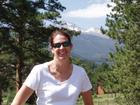So here I am at ALA's Annual Conference. The first session on my agenda was a panel discussion/presentation called Organizational theory and practice: Leading from the middle of the organization. As I listened to the speakers, I realized and really thought about the fact that I am a middle manager. I'd never really given it any serious thought (although clearly on some level I've thought about it since, well, here I am in this session). The speakers balanced each other quite nicely. One was a doctoral student who presented some preliminary research on the experiences of middle managers in libraries, another was a librarian educator (as well as an experienced middle manager) in management, and the last was a new (e.g. less experienced) library manager). Here's what they had to say:
First speaker, John ? (doc student, researcher): Shared leadership = a dynamic relationship between middle management and upper management with the objective of achieving organizational goals.
Surveyed 145 middle managers in a variety of library types in the Pacific West contained 12 statements that respondents rated on a Likert scale. Results: middle managers felt that they shared information with UM but didn't get an equal amount of information in return, communication exchange flows up but not down but MM feel accountable for decisions within their responsibility. Recommends more research be done on MMs. [Interesting presentation software: prezi.com]
Second speaker, Joan Giesecke (upper manager in an academic library): Success as a middle manager is like herding cats – they can be cajoled, coaxed, and persuaded but not forced. MMs need to be able to explain the purpose and goals of the unit, develop a climate of trust, create a climate of optimism, and develop a bias toward action. Understand the work of the unit in order to be able to rearrange complex tasks in response to change and intervene to resolve indterdepartental interpersonal conflict. Think about creating a balance between the needs of the organization with the needs of the individuals within the department. Core skills = technical knowledge, planning and decision making skills, and communication skills. Obtain input and consensus on "value laden" decisions. "It may be impossible to over communicate." Mentioned the importance of not just "delegating problems upwards" without also suggesting solutions. Avoid creating a silo of your unit but rather "manage and integrate horizontally." Things to avoid: "transactional style" = rewards for doing something, "laissez-faire" leadership is not effective, nor is micro-management "balance your technical knowledge with respect for the skills in your unit", "think integration."
Third speaker, Megan Anderson: (new middle manager). Model for MMs. Imagine a line that starts with your role as a novice – a page, you move along the line to a paraprofessional position to a librarian at which point the line splits. One path is toward technical mastery, guru-ism. The other path is toward supervisory positions: MMs. Many of us have one foot on each path, her analogy is plate spinning…MM's job is NOT to keep the plates spinning (cause the people who the plates represent are capable of doing that themselves) but to move the floor beneath them in a way to help them spin their plates. "Focus on helpfulness, differentiated from niceness, likability, friendliness." Helping people do what they need to do to achieve the organizational goals;" helping builds trust, trust allows them to follow you.
It was a fascination session and an area that I'd like to pursue further.

Subscribe to:
Post Comments (Atom)
Live chat
About Me

- SWS
- I am... a wife a daughter a sister/sister-in-law an aunt a reader a librarian a doctor a quilter a niece a grandmother ;-) a cat owner 6 feet 1 inches tall a yoga enthusiast a cook
No comments:
Post a Comment